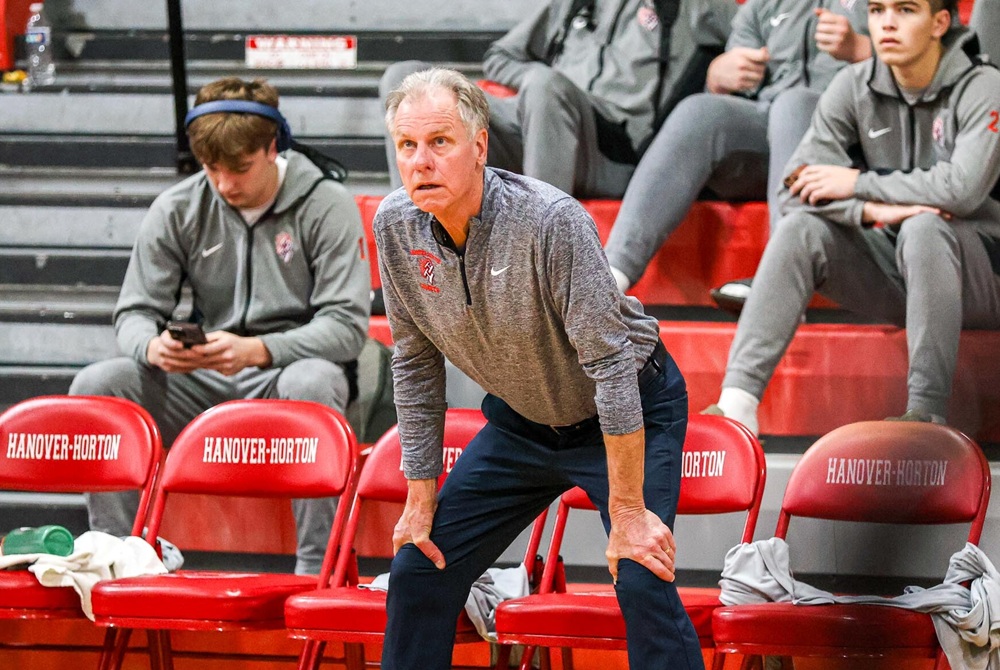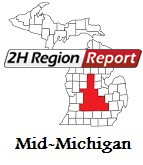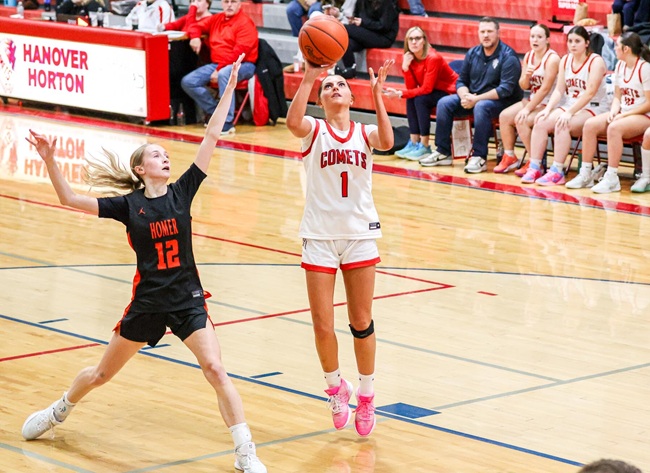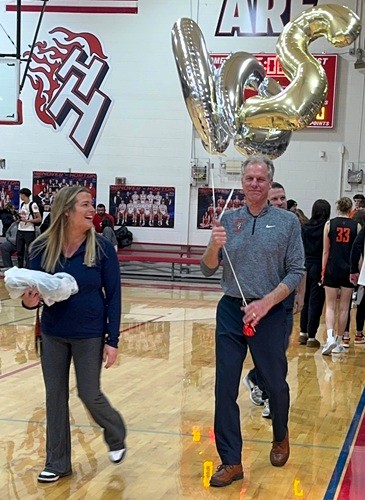
Strategize for First Parent Meeting
November 12, 2014
 By Scott Westfall
By Scott Westfall
Coaches often cite parents as one of the most uncontrollable and frustrating aspects of coaching.
Let’s face it, when this relationship goes south, there can be pent-up frustration and hard feelings between the two parties which can result in a negative experience for everyone involved – especially the player who often is caught in the middle.
Establishing positive relationships with parents should happen from the moment you stand in front of them at your annual parent meeting.
Throughout this meeting parents will be asking themselves: “Can I trust this coach with my child?” “Will this coach be fair in his/her decisions?” and “Will this coach always have my child’s best intentions in mind?”
In order to put them at ease, you must do everything possible to establish yourself as a person of integrity who is altruistic and 100 percent trustworthy. Below is a coaching checklist that will help you establish trust and credibility with your team’s parents:
- Transparency – Do things openly and share information as much as possible. If something bad happens on your team, be sure that you do not sweep it under the rug. Be open and consistent with your decisions, and always follow through on what you say you are going to do.
- Demonstrate Respect – Be polite and sincere with parents and let your actions show that you care. Sometimes the little things you do will resonate louder than the big things.
- List Expectations – Have high expectations for the conduct of both the players and parents in your program. List these expectations, distribute them, and then talk about them with the parents. Meanwhile, let them know what they can expect from you in return (proper dress attire, appropriate language, great sportsmanship, impeccable conduct, proper treatment of game officials, etc.).
- Express Loyalty – As often as possible, be sure to praise your players, assistants, and the people associated with your program. Be sure that you never take credit for other people’s work, and remember to use the word “we” as often as possible.
- Be Accountable – This means taking the blame for bad results– even when it wasn’t necessarily your mistake. Admitting when something goes wrong on your watch doesn’t mean that you are a bad coach or you’ve lost control of your program. True leaders are accountable for the mistakes that happen in their programs.
- Deliver Results – This is not necessarily wins and losses. Instead, deliver results on the things that really matter, such as developing a respectable team, coaching players with all passing grades and having players who do not get into trouble or break the law.
No parent meeting would be complete without a healthy dose of paperwork. To make it easier for parents to keep these papers organized, try to color-coordinate the forms and go over them slowly one at a time. Below are the basic documents you should supply at the parent meeting (Note: Try to also have these documents accessible on your team’s website):
- Coaching Philosophy – Drafting a coaching philosophy will allow parents to better understand who you are and the reasons why you coach. In this document, be sure to include your fundamental beliefs along with your personal approach to coaching. (Note: Be honest in this section – Do not advertise yourself as one type of coach, but then act like another.) Include a lot of “I statements” such as, “I coach for the purpose of teaching life lessons,” “I believe that student comes before athlete,” and, “I am demanding but never demeaning.” Developing and drafting a coaching philosophy not only gives parents insight into you and your program, but also gives you an opportunity to reflect upon why you do things the way you do.
- Team Policies – This is perhaps the most important document you will distribute to your team’s parents. It should list all team rules pertaining to player conduct, grades, eligibility, attendance, discipline, communication, and of course playing time! Include statements such as, “Playing time is earned – not given,” “All decisions will be made based on what is best for the team,” and, “If you have a problem, please talk to the coach.” Inform parents that student-athletes will receive equal opportunities but not equal things. These opportunities include instruction, off-season strength and conditioning programs, and support for their classes. How well student-athletes take advantage of these opportunities (attendance, focus, effort, attitude, and self-discipline) often dictates their levels of success. (Note: Before distributing this document, make sure that your school’s administration/athletic director supports your team policies 100 percent).
- Student-Athlete Character Contract – While many schools have had an athletic code of conduct in place for years, teams today are including an additional written set of norms for players to follow. A character contract outlines how players agree to conduct themselves as a person, student, and athlete. If you want to create more buy-in, consider drafting this contract each season with your players!
- Parent Pledge Form – This document establishes the expectations you have for the parents in your program. Be sure that you include expectations for their conduct at games, having a positive disposition around the team, the treatment of players on your team along with the treatment of your opponents, letting the coaches coach, and how to act toward game officials.
- Team Calendar – Be sure to include detailed information on the times and locations of all practices, team events, games, and places that players need to be. If changes are made to the team calendar throughout the course of the season, be sure you inform parents through several forms of communication (a printed note sent home, an announcement on the team website, email list, social media, etc.).
- Athletic Physicals – While most doctors’ offices have a copy of these blank forms on hand, it is convenient for parents to have access to them through your school.
- Athletic Fees (if you are in a “pay for play” district) – Some districts have a mandatory athletic participation fee, while other districts do not. Some districts have a waiver form for students who are on free/reduced lunch. In any of these cases, make sure that you are on top of this information so you can properly inform your team’s parents at the meeting.
- Conflict Resolution – The occasional conflict is almost inevitable while working in an emotionally charged environment such as athletics. However, conflicts can often be avoided or at least more easily resolved through proper forms of communication.
1. Inform parents that you are always willing to listen to their concerns; let them know that you would prefer they address an issue with you, rather than taking their frustrations to the next game and venting to anybody in the bleachers who is willing to listen.
2. In in your team documents consider a statement such as, “The best tool we have in our relationship is an open line of communication. My door is always open, and so is my mind.”
3. Finally, be sure to let them know that if they are upset about something to not send it through email. Email is good for information, but not communication. Try to communicate and resolve conflicts in person as much as possible.
Once you have established trust and credibility with your team’s parents, you can start building the relationship. Caution: Building a relationship with your team’s parents is not developing close friendships with them. Becoming close friends with parents can actually lead to bigger problems as you open yourself to criticism of playing favorites.
Instead, build working relationships, generated through mutual respect and understanding for each other’s position in the quest of helping the young individual become a successful student-athlete. These working relationships help parents understand their optimal level of involvement, such as where and how they can fit into your program. Below are some tips for building working relationships with parents:
- Learn their names and where they work.
- Learn what the family likes to do when they are outside of the school setting.
- Invite them to a team event such as a team picnic, fundraiser, or team trip.
- Ask parents for help with certain jobs. Many parents appreciate being asked to help with team functions as it gives them an opportunity to get to know other parents and makes them feel like they matter.
- Call them at least once per season to say hello, report on their child’s progress, and ask if there is anything you can do to be of assistance.
- Offer additional support for their child. Helping the student-athlete outside of coaching with things such as academics and typical teen issues shows that you care.
- Offer support to the parents as well. If they are struggling to get a message across to their child, oftentimes a coach sending or reinforcing the same message makes all the difference. As a coach you hold a powerful platform with your student-athletes; use it to help with their development and maturity whenever possible.
Establishing yourself as a trustworthy and credible coach is the first step in getting parents to buy into your program. Meanwhile, providing parents with sufficient information will help them feel like you are keeping them informed and want them as a partner in your program.
Creating working relationships with parents takes time, but will be the cornerstone in establishing a positive experience for the years their children are involved with your program. While some parents may have a different background or mindset, listing your expectations will help them better understand your team’s culture and how they can fit in. If done right, these positive working relationships should alleviate much of your coaching frustration and pay tremendous dividends in the future.
Scott Westfall previously spent 10 years as a teacher, coach, and athletic director in Fort Collins, Colo. He currently is working on his Doctorate at Michigan State University, with an emphasis in Sport Psychology and Athletic Administration, and assisting the MHSAA with its student leadership programs. Westfall is a former athlete who participated in football, wrestling, tennis and cross country at the high school level, and rugby at the collegiate level. He can be reached at [email protected].

200 Wins Later, Lusk's 'Yes' Still Paying Off as Hanover-Horton Surges
By
Doug Donnelly
Special for MHSAA.com
February 3, 2026
Joe Lusk has had to be talked into coaching a couple of times.
But that hasn’t stopped him from being a winner.
 The Hanover-Horton girls basketball coach picked up career victory No. 200 last week when the Comets improved to 12-1 with a victory over Homer. It’s the best start to the season for Hanover-Horton since girls basketball transitioned from a fall sport to winter two decades ago.
The Hanover-Horton girls basketball coach picked up career victory No. 200 last week when the Comets improved to 12-1 with a victory over Homer. It’s the best start to the season for Hanover-Horton since girls basketball transitioned from a fall sport to winter two decades ago.
“He holds his girls accountable and wants to get the best out of each and every one of them,” said Comets athletic director Chris VanEpps. “We are very lucky to have him here at Hanover-Horton.”
Lusk’s career spans two Cascades Conference schools – his alma mater Michigan Center, and Hanover-Horton for the past five seasons. He was also on the bench at Michigan Center when the Cardinals enjoyed incredible success under coach Scott Furman.
Lusk’s story isn’t the typical one about a high school athlete growing up wanting to be a coach. The Consumers Energy retiree, in fact, never considered coaching basketball until his daughter Courtney came home one day and told him he was coaching her team.
“She was in the fifth grade,” Joe Lusk said. “She told me there was a tournament at Vandercook Lake, she was playing and I was going to coach. I told her no way.”
That no slowly turned into a yes.
 After coaching the youth basketball team for several years, Lusk was asked by Furman to join his varsity staff.
After coaching the youth basketball team for several years, Lusk was asked by Furman to join his varsity staff.
“He probably asked me 20 times,” Lusk said. “I kept telling him no. Ten years later, I was still coaching.”
Courtney grew into a varsity player and Lusk became an assistant coach.
“The joke at our house was she was either going to be a good basketball player or she was going to be in therapy,” Lusk said. “She would come home after a tough game and say, ‘Is tonight a therapy night?’”
Not much therapy was needed. The Cardinals went through a remarkable run during which they reached the MHSAA Finals twice and Semifinals another season before Courtney graduated in 2006.
Joe Lusk remained an assistant but, in 2012, Furman died, shocking the Michigan Center community. The ultra-successful coach had won more than 350 games during his career. Lusk took over the job, although he had reservations about becoming head coach.
Over the next nine seasons those reservations were put to rest as the Cardinals won 149 games. In 2018, they went 23-3 and made a run to the Division 3 Semifinals.
Lusk’s last season at Michigan Center was 2020-21. In June 2021, he was hired at Hanover-Horton.
“They found out there was an opening at Hanover and my wife (Cindy) and Courtney put together my resume and sent it in,” Lusk said. “They told me they were doing it. They wouldn’t let me quit (coaching).”
He was hired.
 “Having an experienced coach like Coach Lusk is very important for our program,” VanEpps said. “His consistency and effort to make things better, not just for his teams, but for Hanover-Horton in general, give our younger staff someone to model themselves after. As for the girls on his team, he is stern but fair, which is something that can be lost on our younger generations.”
“Having an experienced coach like Coach Lusk is very important for our program,” VanEpps said. “His consistency and effort to make things better, not just for his teams, but for Hanover-Horton in general, give our younger staff someone to model themselves after. As for the girls on his team, he is stern but fair, which is something that can be lost on our younger generations.”
As for his current team being 12-1, Lusk knows the Comets have difficult games coming up. The Comets face Michigan Center (12-2) on Wednesday, Brooklyn Columbia Central (9-2) in a Cascades Conference West game in two weeks and state-ranked Concord in a nonconference matchup. Hanover-Horton also is in a District with powerhouses like Jackson Lumen Christi and Grass Lake. If the Comets win the Cascades West, they will likely face Grass Lake in the conference title game.
“We know the second half of our schedule is loaded,” he said.
Through it all, basketball remains a family sport. Courtney is the Comets’ junior varsity coach. Cindy keeps the scorebook for every game, something she has done for years.
“We are a basketball family,” Lusk said. “If Cindy didn’t do what she does, I wouldn’t be here today. She does a lot of work. For our juniors program, she keeps track of everything, all of the kids, what their shirt sizes are. If I had to do all of that, I wouldn’t be doing it. She loves basketball.”
 Doug Donnelly has served as a news and sports reporter at the Adrian Daily Telegram and the Monroe News for 30 years, including 10 years as city editor in Monroe. He's written a book on high school basketball in Monroe County and compiles record books for various schools in southeast Michigan. He is now publisher and editor of The Blissfield Advance, a weekly newspaper. E-mail him at [email protected] with story ideas for Jackson, Washtenaw, Hillsdale, Lenawee and Monroe counties.
Doug Donnelly has served as a news and sports reporter at the Adrian Daily Telegram and the Monroe News for 30 years, including 10 years as city editor in Monroe. He's written a book on high school basketball in Monroe County and compiles record books for various schools in southeast Michigan. He is now publisher and editor of The Blissfield Advance, a weekly newspaper. E-mail him at [email protected] with story ideas for Jackson, Washtenaw, Hillsdale, Lenawee and Monroe counties.
PHOTOS (Top) Hanover-Horton girls basketball coach Joe Lusk monitors the action during a game this season. (Middle) Lila Hamisfar (1) puts up a shot against Homer. (Below) Lusk carries balloons celebrating his 200th win alongside Hanover-Horton teacher and basketball parent Courtney Toteff. (Top and middle photos by Hannah Tacy/JTV. Below photo courtesy of Cindy Lusk.)

